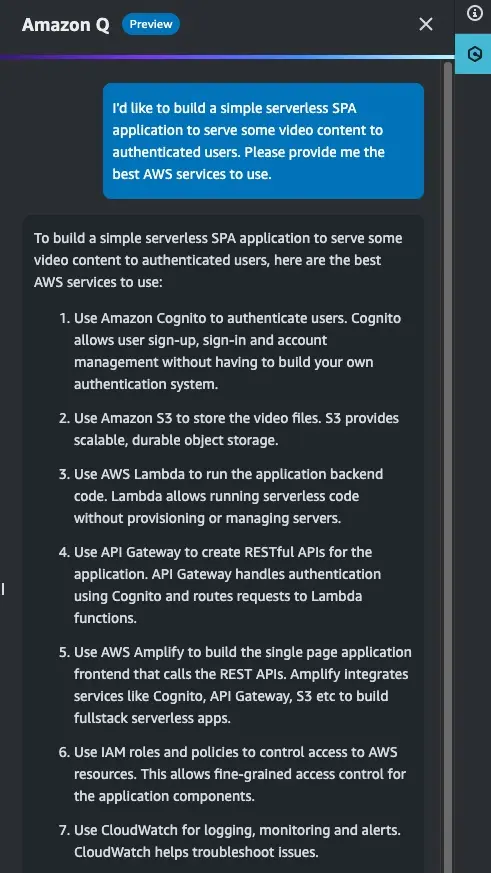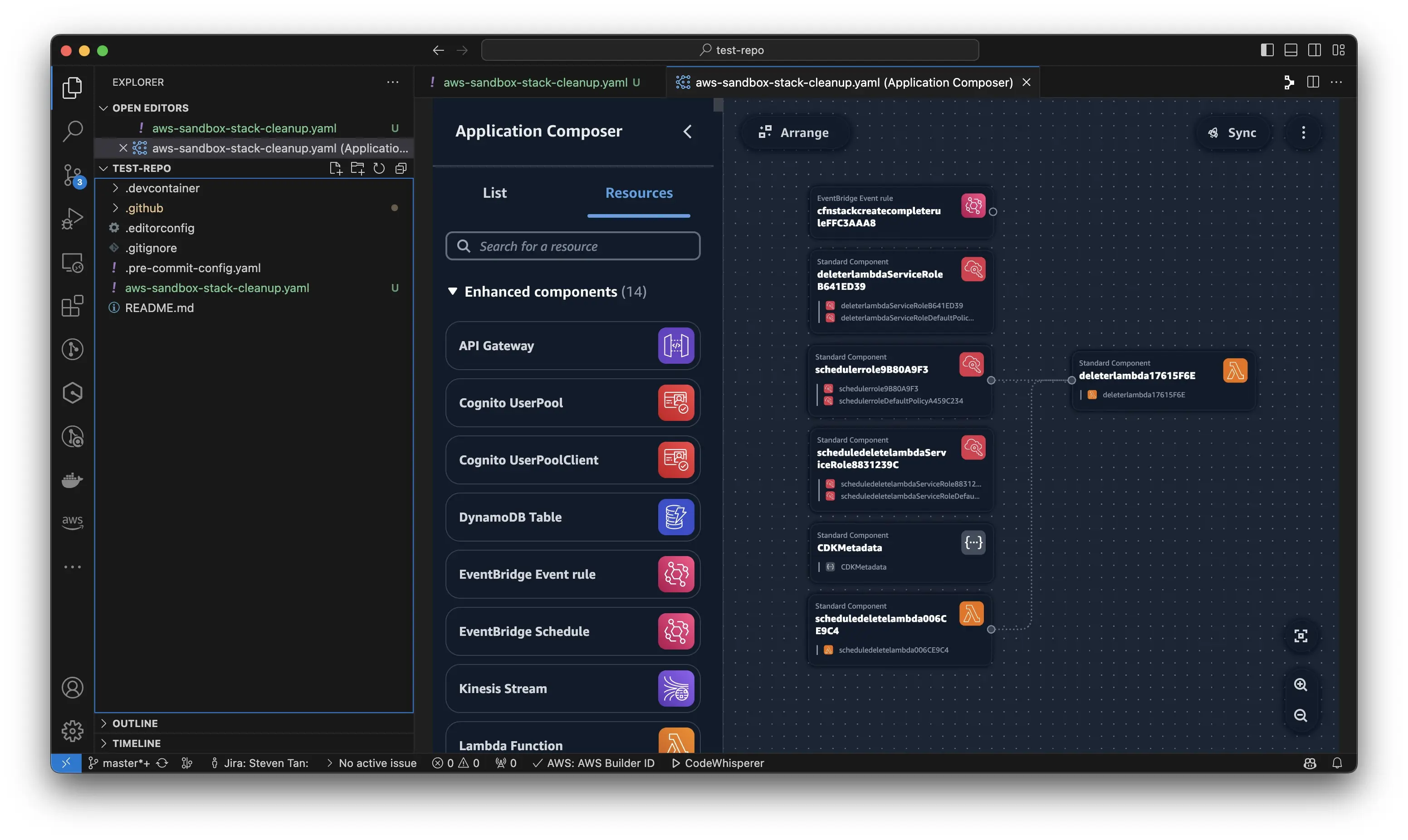The yearly AWS re:Invent conference sped by with many exciting announcements. This year's key topic was Artificial Intelligence (AI), coming as no surprise considering the recent industry trends. To cement the theme of re:Invent, Adam Selipsky's keynote emphasised the importance of Generative AI, announcing Amazon Bedrock and Amazon Q. Even Dr Werner Vogels ended his keynote with the topic of Artificial Intelligence and why every builder must consider it when developing systems and its impact on the world.
In this blog post, I will explore the announcements I felt were the most impactful in 3 categories: Generative AI, Compute and Storage Development.
Generative AI
Starting with the most hyped topic of re:Invent, Generative AI. I will summarise the announcements of Amazon Bedrock, Amazon Q and the latest AWS Trainium2 chips.
Amazon Bedrock
Despite Amazon Bedrock being made generally available in October, AWS has not stopped innovating and adding new capabilities to this service. As part of Adam Selipsky's keynote, he announced that Amazon Bedrock has four new capabilities: Guardrails, Knowledge bases, Agents and Fine Tuning for Amazon Bedrock.
Guardrails for Amazon Bedrock can be a crucial requirement for implementing your generative AI applications, blocking undesired topics from being discussed and keeping the conversation relevant to your business.
Knowledge Bases for Amazon Bedrock is a fully managed end-to-end Retrieval Augmented Generation (RAG) workflow that allows you to quickly ingest data from your private data stores and apply it to the foundational models (FMs) or agents.
Agents for Amazon Bedrock enable generative AI applications to orchestrate multi-step tasks across systems and data sets. These new capabilities introduce the automatic generation of prompts from a given developer instruction and RAG functionality, allowing models to use information from company data sources. Another powerful addition is the ability to trace the agent's chain of thought, helping to debug why the model did what it did when generating its output.
Fine Tuning for Amazon Bedrock allows the available FMs to be further trained on labelled datasets, adapting the model to businesses’ and extending its knowledge. This fully supported feature currently supports customisation for Cohere Command, Meta Llama 2, Amazon Titan Express, Amazon Titan Text Lite, Amazon Titan Multimodal Embeddings and Amazon Titan Image Generator.
Amazon Q
The Amazon Q release comes in 2 variations that are available for use:
- Chatbot usable from the Amazon AWS Console and documentation pages
- Chatbot service tailored to your content and information

The variation of Amazon Q accessible from the Amazon AWS Console and documentation is a chatbot trained on internal and public AWS documentation. Amazon Q can answer questions ranging from the basics like "Why can't I SSH to my EC2 instance?" to more complicated architecture recommendations given a set of requirements.
If you want to use Amazon Q within your business, you can connect it with many data sources such as Amazon S3, Microsoft Sharepoint, Salesforce, Atlassian Confluence and more! Once the data source is connected, you can build your own generative AI chatbot based on business information, build dashboards and data stories with Amazon Quicksight. Empower your call-centre workers by having Amazon Q analyse their real-time conversations on Amazon Connect to provide recommendations on how to respond or what actions to take.
AWS Trainium2 Chips
The AWS Tranium chips are a series of compute optimised for machine learning, providing better performance than regular CPUs for training models. The new Tranium2 chips are designed to provide 4x faster training and improve energy efficiency by 2x compared to the previous generation. These can be deployed in EC2 UltraClusters with up to 100,000 Trainium2 chips to train FMs and Large Language Models.
Compute and Storage
In the computing and Storage space, the new Graviton4 and Amazon S3 Express One Zone features were an exciting addition to the existing capabilities.
Graviton4
Graviton4 is the latest in the lineup of ARM-based AWS CPUs. This new CPU provides up to 30% better compute performance, 50% more cores and 75% more bandwidth than the Graviton3 processors. For workloads that do not require x86 instruction set compatibility, this will provide cost savings due to better performance and help lower your workload's impact on the environment. Graviton4 will first be available in the R8g instance types, enabling customers with large memory requirements such as databases, in-memory caching or big data analytic workloads to improve their performance with minimal effort.
Amazon S3 Express One Zone
Amazon S3 Express One Zone is a single-availability zone storage class purpose-built to provide single-digit millisecond access to your data. This new storage class improves data access speeds by 10x and reduces request costs by 50% compared to the standard S3 class. A very big use-case for this will be when large data sets are needed, such as for training your machine learning and artificial intelligence models, data analytics or data modelling.
Development
AWS has always been seen as developer-friendly, providing APIs, libraries and tooling that enhances developer productivity. AWS Application Composer and Amazon Q Code Transformation are the latest set of tools designed to increase productivity and help with the developer experience when building on AWS.
AWS Application Composer
AWS Application Composer helps you visualise and configure applications within Visual Studio Code or the AWS Console. You can drag and drop any AWS CloudFormation resource onto a visual canvas and generate ready-to-deploy AWS CloudFormation templates, speeding up the development process and lowering the learning curve when building templates.
AWS Application Composer in Visual Studio Code is available through the AWS Toolkit extension. The AWS Toolkit extension also provides code suggestion capabilities via generative AI. Combining these features, you can edit your AWS CloudFormation templates in your IDE and receive live feedback visually and as infrastructure as code suggestions.
 Amazon Q Code Transformation
Amazon Q Code Transformation
Amazon Q Code Transformation is a tool that allows developers to perform code upgrades and migrations within minutes. It empowers developers by automatically performing runtime code updates, fixing build errors and running unit tests. Running Amazon Q Code Transformation against your Java codebase also has the bonus of taking advantage of reduced security vulnerabilities and increased performance in the newer runtime engines.
Conclusion
AWS re:Invent is always an exciting end to the year announcing their latest innovations and this year was no different. If you want to know more, visit the AWS blog for a list of their announcements as well as their YouTube channel for the 5 keynotes and nearly 900 sessions.
